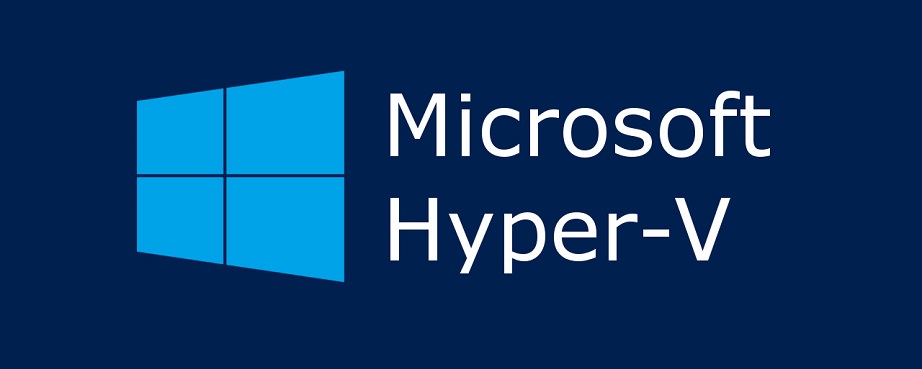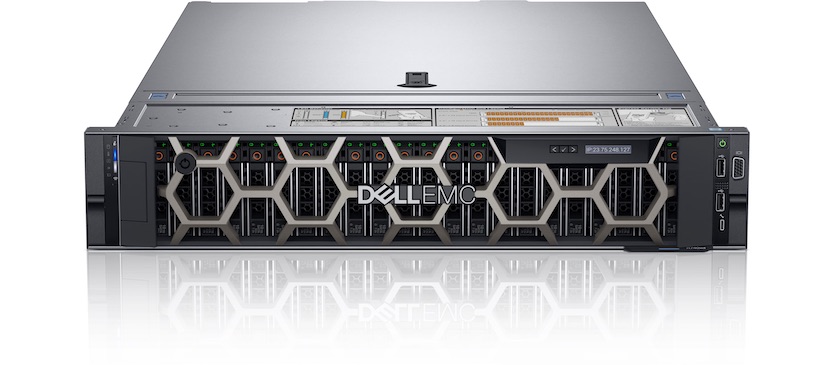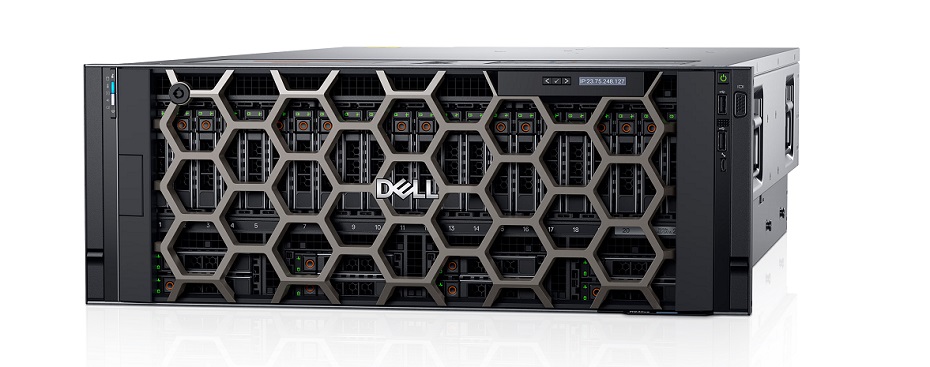Best DELL Server for Hyper-V
Virtualization has become an indispensable technology for modern businesses seeking to optimize their IT infrastructure. Among the leading virtualization platforms, Microsoft's Hyper-V stands out for its robust features, reliability, and seamless integration with the Windows ecosystem. However, the effectiveness of Hyper-V deployment heavily relies on the underlying hardware, particularly the server architecture.
Hyper-V is Microsoft's native hypervisor, providing a platform for creating and managing virtualized computing environments. By abstracting physical hardware resources into virtual machines (VMs), Hyper-V enables efficient resource utilization, enhanced flexibility, and simplified management of IT infrastructure.

While Hyper-V software lays the foundation for virtualization, the choice of hardware significantly influences performance, scalability, and reliability. Selecting the appropriate Dell server model tailored for Hyper-V is crucial to maximizing the benefits of virtualization while ensuring optimal system performance and stability.
In this article, we delve into the realm of Dell server models optimized for Hyper-V workloads. We'll explore key considerations to bear in mind when selecting a server for Hyper-V deployment and highlight top-performing Dell PowerEdge models tailored to meet the demands of virtualized environments. Whether you're a small business looking to virtualize your infrastructure or an enterprise scaling up your virtualization initiatives, this guide will help you make informed decisions to propel your Hyper-V deployment forward.
Considerations for Hyper-V Server Selection

Before diving into specific Dell server models, it's essential to outline the key considerations when selecting a server for Hyper-V deployment. By understanding your organization's requirements and evaluating various factors, you can ensure that the chosen server meets your virtualization needs effectively.
Performance Requirements
One of the primary considerations when selecting a server for Hyper-V is performance. Assessing the workload characteristics and determining the required compute, memory, and storage resources is crucial. Factors such as CPU architecture, core count, memory capacity, and storage type (HDD or SSD) play a significant role in achieving optimal performance for virtualized workloads.
Scalability Needs
Scalability is another critical aspect to consider, especially for organizations experiencing growth or planning for future expansion. A server model that offers scalability in terms of CPU, memory, and storage capacity ensures that your virtualized environment can accommodate increasing workloads without experiencing performance bottlenecks or resource constraints.
Budget Constraints
Budgetary considerations are inevitable when selecting a server for Hyper-V deployment. It's essential to strike a balance between performance, scalability, and cost-effectiveness. Evaluating the total cost of ownership (TCO) over the server's lifecycle, including initial acquisition costs, ongoing maintenance, and energy consumption, helps in making informed decisions aligned with budget constraints.
Management and Support Considerations
Effective management and support are vital for ensuring the smooth operation of a Hyper-V environment. Choosing a server model with robust management features, remote management capabilities, and comprehensive support services can streamline administrative tasks, enhance system reliability, and minimize downtime.
By carefully considering these factors, organizations can make informed decisions when selecting a Dell server model for Hyper-V deployment. In the following sections, we'll explore top-performing Dell PowerEdge server models optimized for Hyper-V workloads, taking into account these considerations to meet the diverse needs of virtualized environments.
Top Dell Server Models for Hyper-V
When it comes to Hyper-V deployment, Dell PowerEdge servers are renowned for their reliability, performance, and scalability. Let's explore some of the top Dell server models that are optimized to deliver exceptional performance and efficiency for Hyper-V workloads:
Dell PowerEdge R740

The Dell PowerEdge R740 is a versatile and powerful server designed to meet the demands of virtualized environments, including Hyper-V deployments. With dual-socket scalability and support for the latest Intel Xeon Scalable processors, the R740 offers exceptional performance for compute-intensive workloads. Its flexible storage options, including NVMe SSDs and RAID configurations, ensure high-speed data access and storage efficiency. The R740's robust management features, such as integrated iDRAC with Lifecycle Controller, simplify server management and monitoring, enhancing operational efficiency in Hyper-V environments.
Dell PowerEdge R640

Ideal for small to medium-sized businesses and remote office deployments, the Dell PowerEdge R640 packs impressive performance and scalability in a compact form factor. Powered by Intel Xeon Scalable processors and featuring DDR4 memory and flexible storage options, the R640 delivers exceptional compute power and storage capacity for virtualized workloads. Its efficient cooling design and energy-saving features make it a cost-effective solution for Hyper-V environments where space and power are limited. With comprehensive management capabilities and Dell's ProSupport services, the R640 ensures reliable performance and support for Hyper-V deployments.
Dell PowerEdge R940

For enterprises with demanding virtualization workloads, the Dell PowerEdge R940 offers unparalleled performance, scalability, and reliability. Equipped with up to four Intel Xeon Scalable processors and massive memory capacity, the R940 delivers exceptional processing power and memory bandwidth for large-scale virtualization deployments. Its extensive storage options, including support for NVMe SSDs and dense storage configurations, ensure optimal storage performance and capacity for Hyper-V environments. Advanced management features, redundant power supplies, and proactive support services make the R940 an ideal choice for mission-critical Hyper-V deployments in enterprise settings.
These Dell PowerEdge server models represent the pinnacle of performance, scalability, and reliability for Hyper-V environments. By choosing the right server model based on your organization's requirements and workload characteristics, you can build a robust and efficient virtualization infrastructure that maximizes the benefits of Hyper-V technology.
Conclusion
In conclusion, selecting the best Dell server model for Hyper-V deployment is a crucial step in building a robust and efficient virtualization infrastructure. By considering factors such as performance, scalability, and cost-effectiveness, organizations can make informed decisions that align with their Hyper-V workload requirements and budget constraints.
In the ever-evolving landscape of virtualization technology, Dell PowerEdge servers remain at the forefront, delivering exceptional performance, scalability, and reliability for Hyper-V deployments. By leveraging the capabilities of these server models, organizations can build a resilient virtualization infrastructure that optimizes resource utilization, enhances operational efficiency, and drives business growth.
With the right Dell server model powering their Hyper-V environment, organizations can confidently embrace the benefits of virtualization and unlock new possibilities for innovation and growth in the digital era.